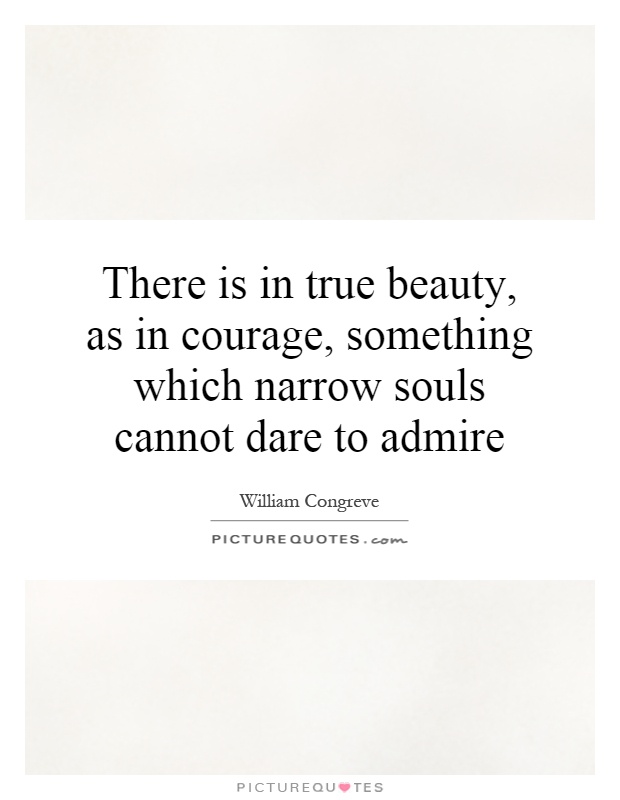There is in true beauty, as in courage, something which narrow souls cannot dare to admire

There is in true beauty, as in courage, something which narrow souls cannot dare to admire
William Congreve, a prominent English playwright and poet of the late 17th and early 18th centuries, was known for his sharp wit and keen observations of human nature. In his works, Congreve often explored themes of love, betrayal, and societal expectations. One of his most famous quotes, "There is in true beauty, as in courage, something which narrow souls cannot dare to admire," speaks to the idea that true beauty and courage are qualities that are not easily appreciated by those who lack depth and understanding.Congreve's statement suggests that true beauty and courage are not superficial qualities that can be easily recognized or appreciated by everyone. Instead, they require a certain level of insight and openness to appreciate. Narrow souls, or those who are closed-minded and lacking in empathy, may struggle to see the beauty and courage in others because they are unable to see beyond their own limited perspectives.
In the context of Congreve's work, this quote can be seen as a commentary on the characters and relationships he portrays in his plays. In works such as "The Way of the World" and "Love for Love," Congreve explores the complexities of love and desire, often highlighting the ways in which societal expectations and personal insecurities can hinder true connection and understanding between individuals.
In these plays, characters who possess true beauty and courage are often those who are able to rise above the constraints of society and follow their hearts, even in the face of adversity. These characters are not always the most conventionally attractive or successful, but they possess a depth of character and a willingness to take risks that sets them apart from the narrow-minded individuals who cannot appreciate their true worth.
Congreve's quote also speaks to the idea that true beauty and courage are qualities that require a certain level of vulnerability and risk-taking. To truly appreciate and admire these qualities in others, one must be willing to look beyond surface appearances and societal norms, and embrace the complexities and contradictions that make each individual unique.












 Friendship Quotes
Friendship Quotes Love Quotes
Love Quotes Life Quotes
Life Quotes Funny Quotes
Funny Quotes Motivational Quotes
Motivational Quotes Inspirational Quotes
Inspirational Quotes